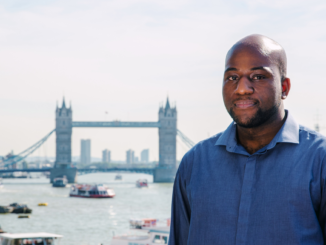A The history of conspiracy is ancient. The moment when the "conspiracy theories" became an explicit and conscious political method to justify political actions was the French Revolution (1789) and the following years. It was the so-called period of Terror. Poverty and social inequality in France had reached such a dramatic threshold that it became unsustainable. The bourgeois masses, inspired by the new ideals proclaimed by the Enlightenment philosophers - equality, freedom and brotherhood - joined forces to subvert the feudal monarchical order. In this way they led to the fall of the so-called ancien regime. As a result, kings, nobles and clergy became the privileged targets of their protest.

A The history of conspiracy is ancient. The moment when the “conspiracy theories” became an explicit and conscious political method to justify political actions was the French Revolution (1789) and the following years. It was the so-called period of Terror.
It is the end of the 18th century. Poverty and social inequality in France had reached such a dramatic threshold that it became unsustainable. The bourgeois masses, inspired by the new ideals proclaimed by the Enlightenment philosophers – equality, freedom and brotherhood – joined forces to subvert the feudal monarchical order.
In this way they led to the fall of the so-called ancien regime. As a result, kings, nobles and clergy became the privileged targets of their protest.
Conspiracy Theories and Terror
The sacred fire of the revolutionaries in the years immediately following the revolution, however, gave way to the Terror (1793-94).
After a trial for treason, King Louis XVI was condemned to death (1793). But at that point internal strife began between the parties of the revolution. To fight the enemies of France, the Jacobins, who professed ideas inspired by an intransigent republicanism, adopted drastic emergency measures. As a result, those who disagreed were accused of participating in a conspiracy and guillotined. This applied also to people who had guided the revolution.
Estimates of the number of people killed by the guillotine because “enemies of the people” ranged from 17,000 to 40,000. According to historians, three-quarters of the people executed were innocent. In its days of “glory”, the guillotine took up to 3,000 lives in a month. It is an average of 100 people in a single day.
Enemies of Renewal
The revolutionaries believed that the aristocrats were plotting to oppose the new government. For this reason they continued to kill people they suspected of participating in the conspiracy. One of the main leaders of those years was Maximilien de Robespierre. Although he was called “the Incorruptible”, he did not end well either. He himself died decapitated on conspiracy charges in 1794.
For their part, the alleged conspirators, the monarchical and clerical counterrevolutionaries, also played on equal terms. In fact, they did not hesitate to appeal to obscure forces that had long planned the subversive action of the French Revolution. Their targets were the anti-Christian Enlightenment like the philosophers Voltaire and Diderot and the mysterious sect of Freemasons who, according to them, would plot against the established power in France.
Why Do Conspiracy Theories Happen?
According to the scholars, the conspiracy theories are born on the occasion of events that strike the public imagination, such as tragic events linked to the death of famous people, great civil and environmental disasters or terrorist acts.
In the case of the French Revolution and the subsequent years of Terror, for historians the conspiracies were functional to the need to impose a new order. Identifying precise conspirators was in fact easier to get public opinion to accept than to declare the natural decline of the monarchy and the Church that for centuries had oriented the lives of all subjects.









